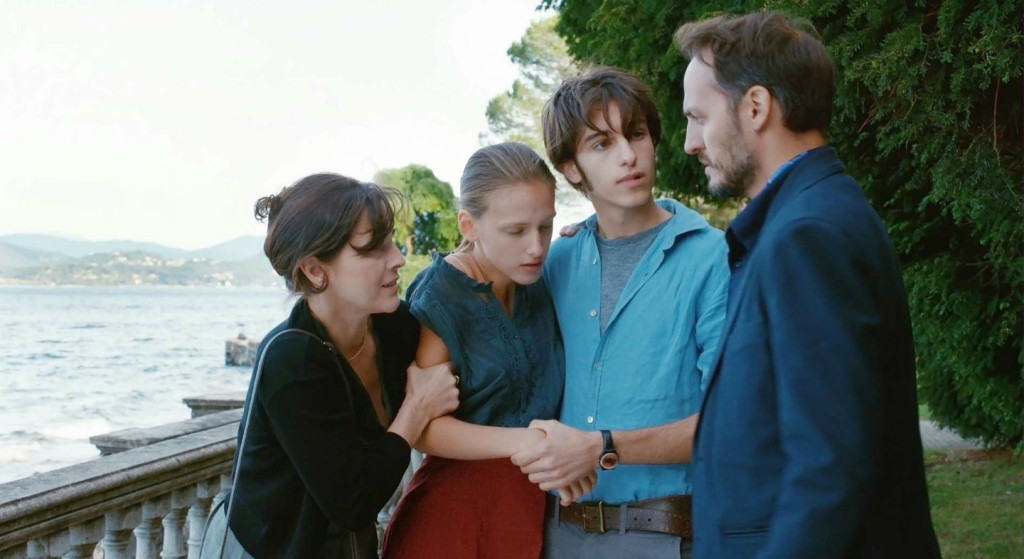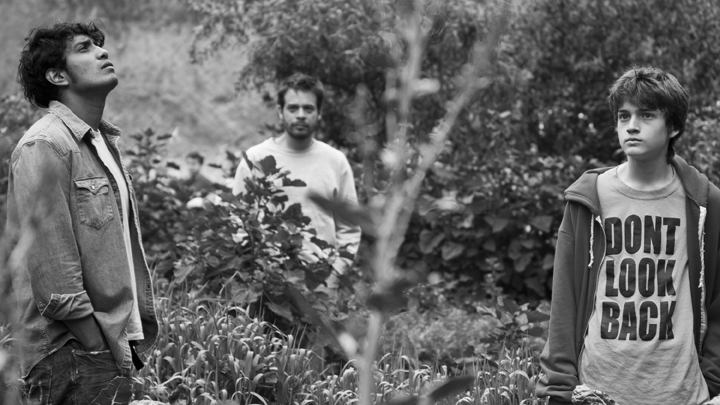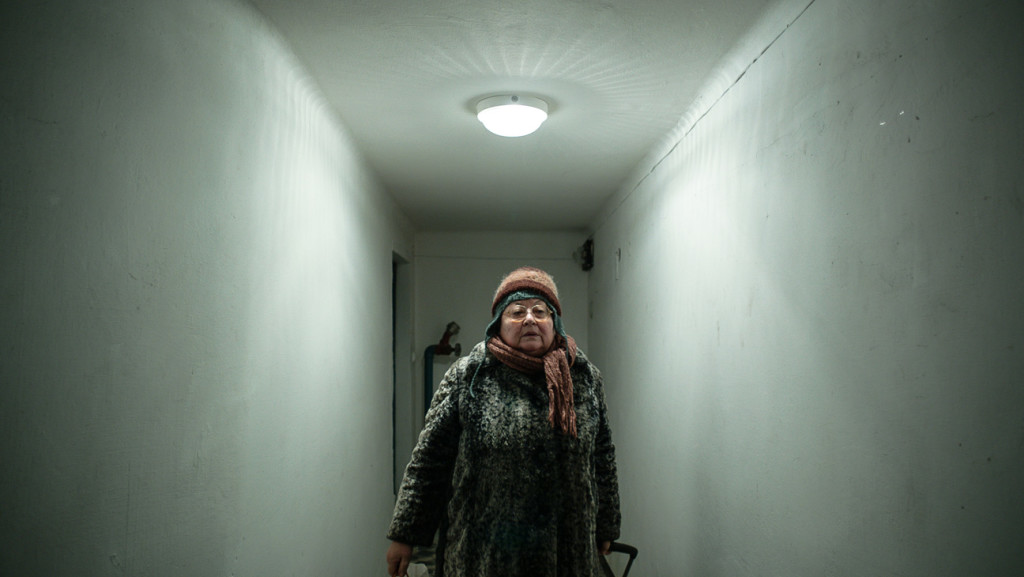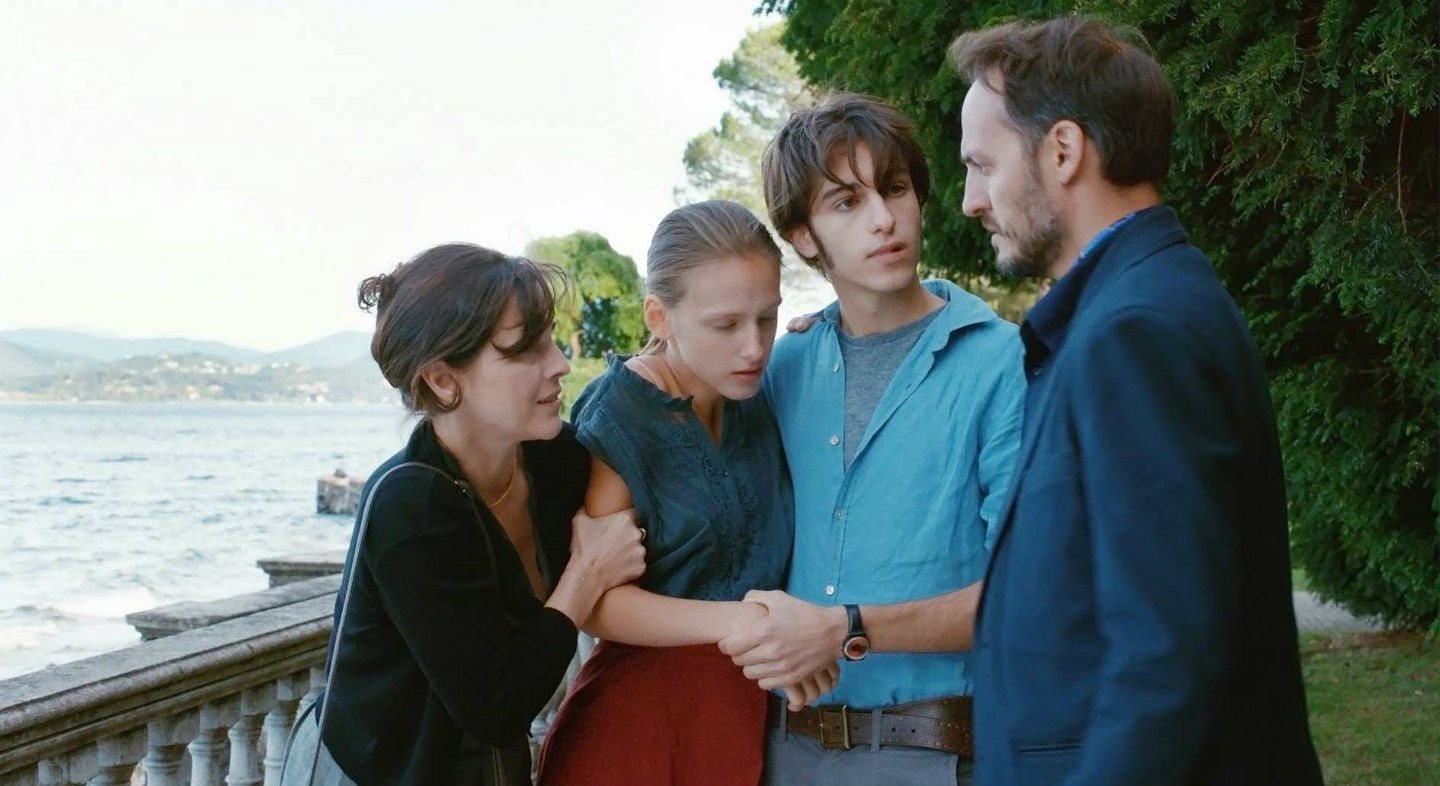
“Of love, light, and labor(iousness):” La Sapienza – Sundance Cinema 6 (1:00-2:50p)
A sort-of stylistic and narrative marriage of Andrei Tarkovsky’s Nostalghia (1983) and Paolo Sorrentino’s The Great Beauty (2013), Eugène Green’s artistic journey, unfortunately, only illuminates the artificiality of connections between the past and present. In the juxtaposition of the old and new worlds, La Sapienza spends an inordinate amount of time verbalizing the theme (“the architect must summon presence through light”) and a comparatively scant amount visualizing it through the inherent splendor of location. As if the grandest intention was for the film to stand as an art history lesson on Francesco Borromini’s contributions to Italian architecture, Green loses the emotional center of the work in characters’ recitations, half in tedious voiceover.
Celebrated architect Alexandre Schmidt (Fabrizio Rongione) is adrift in his professional and personal life until, by serendipitous/fateful vacation in the town of Stresa, he encounters an aspiring young version of himself, Goffredo (Ludovico Succio), supporting his sister Lavinia (Arianna Nastro), who’s suffering from a dizzy spell. As Alexandre’s wife Aliénor (Christelle Prot) nudges him towards building a relationship with the boy, she grows increasingly possessed of Lavinia’s own allure, as if the universe has designed some divine plan for the four of them.
Distracting cinematography, as if attempting to channel the intense emotion of Bergman’s Winter Light (1962) by way of Carl Theodor Dreyer’s Passion of Joan of Arc (1928), ultimately feels hollowly secular instead of sacred, deceiving the audience into believing every word of dialogue hinges upon some immense revelation. The end-result of this ironically spiritless journey is as predictable as any Hollywood melodrama.
- La Sapienza screens again at the Union South Marquee on Sunday, Apr 12 (12:15p). Tickets are still available.

“On strike from the strike:” Güeros – Sundance Cinema 5 (6:45-8:40p)
Alonso Ruizpalacios’ droll tour of Mexico City is bursting with free-form energy, which carries its astray protagonists to-and-from every needle point on the compass, including a student strike at a university. Evoking the 1960s New Wave (in black-and-white, 4:3) and Linklater’s likable characters on-the-margins in Dazed and Confused (1993), Güeros‘ leaves an impression akin to Paul Thomas Anderson’s Punch-Drunk Love (2002) in their highly romantic music overtaking grittier locale and mood. (Also, the frantic tracking shots of people running in this film recall Barry Egan’s flights from the four blonde brothers in P-DL).
After some reckless behavior, teenage Tomás (Sebastián Aguirre) is forced to live in the city with his older slacker brother, Federico (Tenoch Huerta), who’s now going by the name “Sombra.” In this squalid apartment, Tomás finds a newspaper article announcing that one of their favorite musicians Epigmenio Cruz has been hospitalized with cirrhosis; the two brothers and roommate-friend Santos (Leonardo Ortizgris) then navigate the roads in search of the elusive character, whose sound infamously “made Bob Dylan cry.” While film isn’t the most conceptually original project out there, it’s an engaging coming-of-age story meshed with a sociological comment in an unsteady but poetic political climate. Nervousness is often mistaken for exhilaration and vice versa, well-expressed through the cinematography. As a clever stylistic device that magnifies Cruz’s mythos, his tunes are actually never heard on the film’s soundtrack but muffled and contained within personal headphones. In his absence, student pirate-radio broadcasts boom loudly, add a wonderfully complex and even meta-dimension to the trio’s antics.
- Güeros screens again at Sundance Cinema 1 on Sunday, Apr 12 (9:30p).

“Gonna leave this world for awhile:” Free Fall – Sundance Cinema 6 (9:45-11:15p)
Essentially a series of short films constructed under one roof (literally), György Pálfi’s Free Fall [Szabadesés] is a delirious bedtime story, a crazy coda to a hectic day of festival-going. Propelled by Amon Tobin’s glitchy beats that act as a counterpoint to the film’s generally understated editing and steadily moving vignettes, the intriguing film feels at odds with itself, like a carefully plotted dream.
Elderly wife (Piroska Molnár), tired of her husband and banal domesticity, decides to plunge to her death from the rooftop of the apartment building; she miraculously survives the fall, collects her bearings, and heads back inside. While climbing the staircase, the film then takes a completely tangential approach, gazing through the walls of the seven apartments vertically aligned from her path to the pavement. Among them are a strange choir recital where attire appears to be optional, a couple of extreme germaphobes in a white room, a sitcom parody within itself, a most unorthodox gynecological procedure, and formal dinner with a boy, his ma, and a leering cow.
The film’s swirl of black comedy and surrealism might garner comparisons to Leos Carax’s Holy Motors (2012), Roy Andersson’s films stuck in deadpan limbo, and even Donald Barthelme’s eccentric stories, but the film doesn’t quite have the interconnection or punch of those works and ultimately feels like a mere exercise in arbitrary absurdity.
- Free Fall screens again at Sundance Cinema 6 on Sunday, Apr 12 (4:00).

